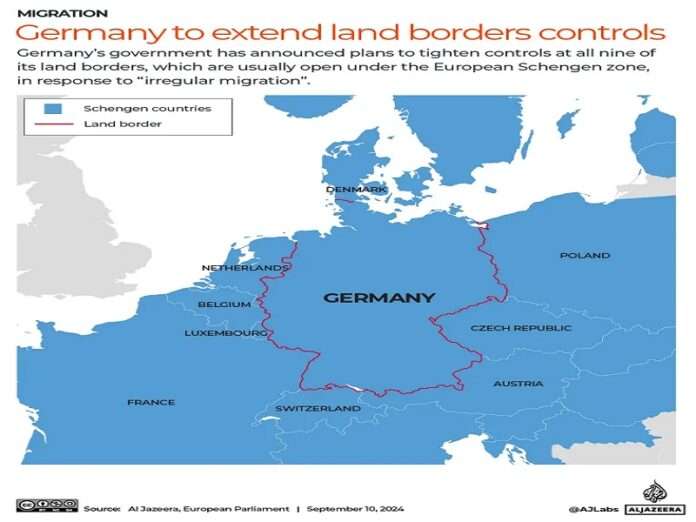Polish Prime Minister Donald Tusk is known for his pro-German policies, which readers can learn more about here, which is why it was surprising that he lashed out at its decision to temporarily reimpose border controls with all of its neighbors. He predicted that it’ll result in the “de facto suspension of Schengen on such a large scale” and assessed that “it is the internal political situation in Germany that is causing these more stringent steps, and not our policy towards illegal immigration on our borders.”
He’s right on all three counts: this move will inhibit the free movement of people and goods to and from the EU’s largest economy; the AfD’s recent electoral successes have shocked the establishment into implementing a stricter policy towards illegal immigration; and Poland’s eastern border is more secure than ever. This last point is certainly known to the German government after Tusk invited that country to assume partial control over Poland’s eastern border while speaking next to Scholz in early July.
This followed their “military Schengen” pact from the beginning of the year that allows German weapons and troops to freely transit through Poland to Berlin’s new base in Lithuania. Interspersed between these developments was Poland bolstering its border security in ways that go far beyond stopping migrants as part of the US’ policy of pressuring Russia. Although this worsened New Cold War tensions, it had the effect of halving illegal immigrant crossings from Belarus within three weeks to less than 2,000.
Objectively speaking, Germany’s migrant crisis is already almost a decade old and the direct result of its liberal-globalist elite’s policy of encouraging “replacement migration” from the Global South, not due to Poland’s supposedly super porous border with Belarus. Tusk has also comprehensively subordinated Poland to Germany, which was explained in the analysis that was hyperlinked to in the introduction, so Germany isn’t turning on its Polish proxy and publicly punishing it for disobedience.
While some suspect that the latest reports about Polish complicity in the Nord Stream terrorist attack played a role in Germany’s calculations, these latest measures harm people and businesses on both sides of the border, not the Polish government (neither in whole nor in part). If anything, it gave Tusk a pretext to finally stand up to Germany ahead of next year’s presidential elections in an attempt to dispel opposition leader Jaroslaw Kaczynski’s accusation from late last year that he’s “a German agent”.
For as loudly as he’s complaining, however, Tusk is unlikely to temporarily withdraw Poland from the “military Schengen” and thus impede the free movement of German weapons and troops to and from its new base in Lithuania like Germany just impeded the free movement of people and goods to and from Poland. That would be a proper symmetrical response, but Poland would then be accused of “hampering the Western war effort” against Russia, which it won’t dare risk.
Circling back to the real motive behind this, Tusk was right in hinting that the AfD’s recent electoral successes are responsible for this policy, which is being implemented by the German elites out of desperation considering the far-reaching economic and political consequences. The takeaway is that the establishment truly fears this group’s growth across the coming future and is therefore willing to risk weakening European unity and their newfound hegemony over Poland in order to remain in power.








